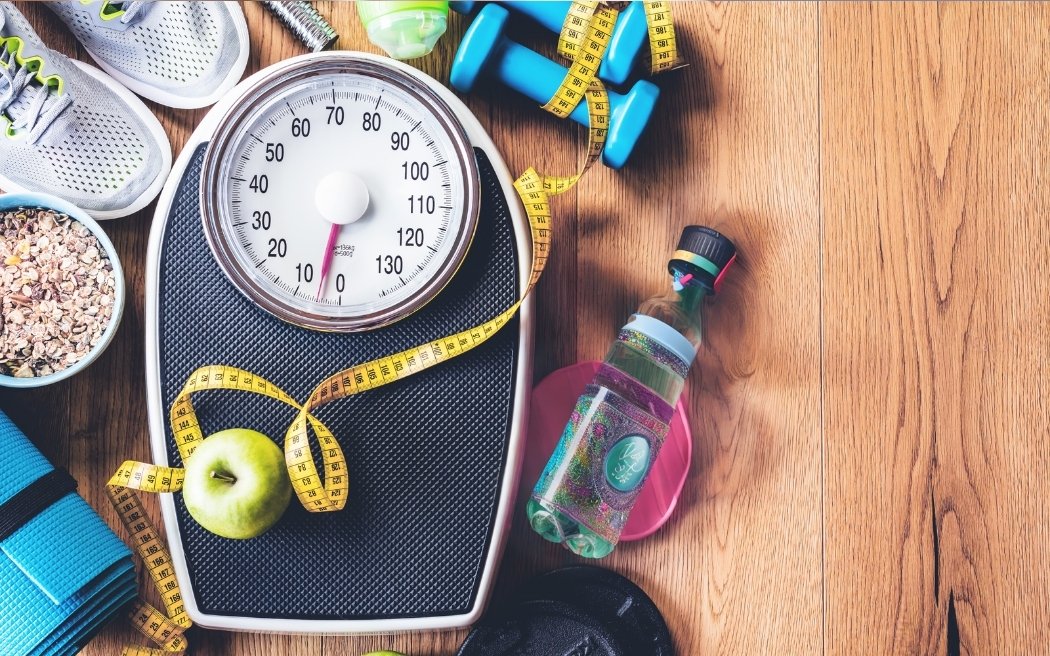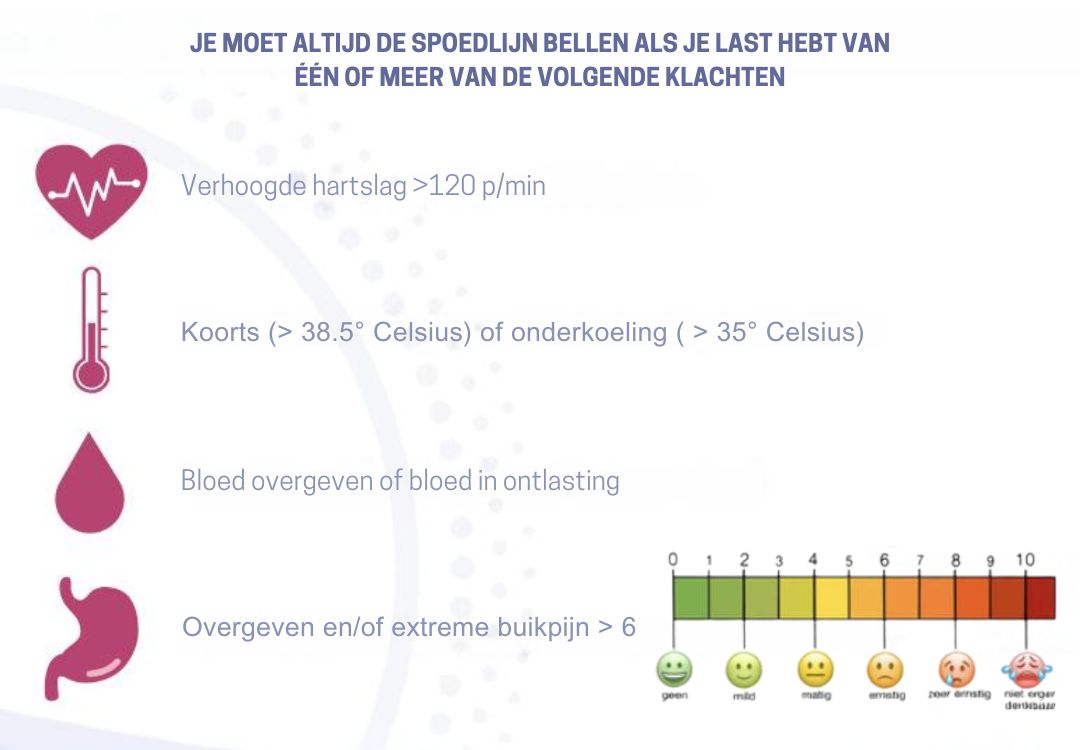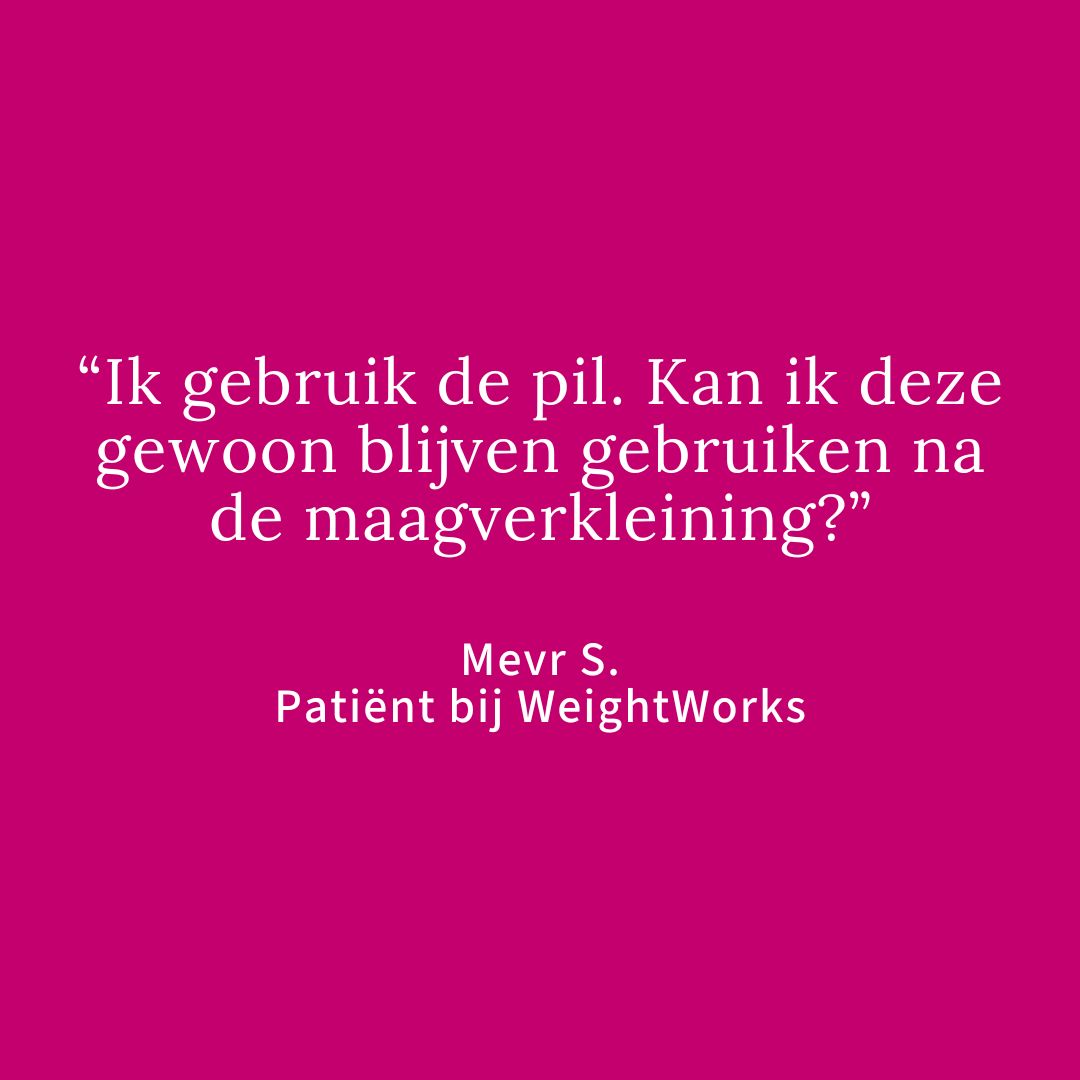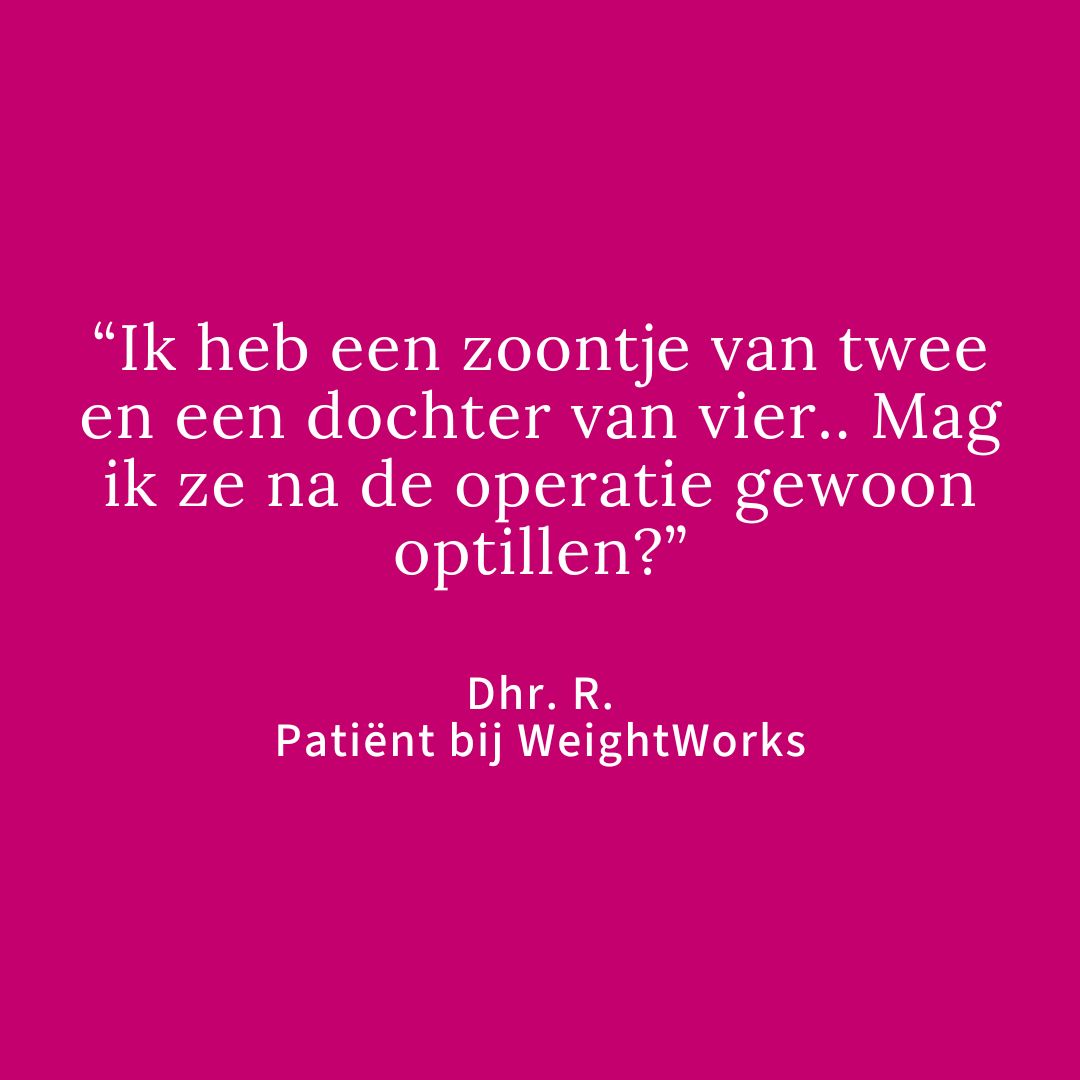Recovering after stomach surgery? This is what you can expect!

Before undergoing gastric bypass surgery, you have often already done a lot of research and inquiries about what to expect.
About the gastric bypass itself, but also about the recovery phase.
You may wonder when you can shower again, if you will have problems with your bowel movements and if you will have a lot of pain after the surgery. Dr. Kevin Göttgens, gastrointestinal surgeon at WeightWorks, has now successfully performed more than a thousand gastric reduction surgeries since 2015. He knows exactly what patients can expect during the recovery period. “We’ll explain the most common things you’ll have to deal with after gastric bypass surgery. Recovering after gastric bypass surgery requires taking good care of yourself and making lifestyle adjustments.”
In this blog, we’ll explain exactly what to expect during recovery from gastric bypass surgery.
We tell you what symptoms to expect, such as nausea and pain, bowel movements and wound care.
We also talk about birth control (such as the pill) nutrition after gastric bypass and when you can return to certain activities.
- Nausea
- Pain
- Showers
- Wound Care
- Constipation
- Stomach protectors
- Preventing thrombosis
- Antibiotics
- Contraception (pill)
- Nutrition after gastric bypass
- Picking up activities
- Mental health
Stomach reduction recovery
It is normal to need time to recover after stomach surgery.
Complaints such as nausea and pain are normal in the 1-2 weeks after surgery.
We describe general experiences and advice about nausea, pain, showering/washing and wound care after gastric bypass surgery.
It is also good to know how stomach reduction affects contraception, such as the pill.
Nausea after gastric bypass: how long does it last?
After surgery, you may experience nausea and pain in your shoulders and at the top of your abdomen.
During surgery, carbon dioxide gas is blown into your abdomen to make room for the surgery.
It takes about 24h for the gas to leave your body.
This gas can cause pain in your back and shoulders.
The sooner you start walking again, the sooner it will be gone.
The pain after is due to the wound on the inside of the abdomen and the changes that have occurred to the stomach.
It helps to sit up well and walk.
Usually the nausea is mostly gone after 3-4 days.
As the internal wounds heal, the nausea also disappears.
This usually takes a week. Tip against nausea: Always drink small sips, despite nausea.
Filling the stomach helps to counter nausea.
Pain after gastric bypass surgery: what to expect?
Some pain after gastric bypass surgery is quite normal.
There are wounds both internally and externally that need to heal.
In the beginning, the pain is often at the top of the abdomen, sometimes radiating to the shoulders.
We expect the pain to subside further each day from the day after surgery.
To reduce the pain you can take painkillers.It is advisable to take the pain medication at fixed times during the first few days in order to build up a good level in the blood.
So rather than wait until the pain is bad, try to get ahead of it.
- For most people, paracetamol 1,000 milligrams 3-4 times daily is sufficient.
- If paracetamol does not work adequately, you may take Tramadol up to 50 mg 3 times a day.
- A number of people do not need painkillers at all.
- Advice remains: keeping moving well helps against all aches and pains
- Know that some pain after surgery is normal.
A pain score of 6 out of 10 on day 1 is obviously different than if you are still experiencing this on day 5.
Showering after gastric bypass surgery: when is it allowed again?
You may shower briefly again 2 days after surgery.
Do not clean the wounds with soap and be careful not to rub the wounds.
After surgery you should not take a bath.
This is because it is not good when the wounds ‘soak’ in water.
Do not bathe again until 7 days after the operation and when the wounds are closed.
Wound care after gastric bypass surgery
During keyhole surgery, 5 skin wounds were made.
The wounds are covered with a band-aid.
The plaster protects the wound but also your clothes, because sometimes a drop of blood can still come out of the wound. 5 Advice on wound care after gastric bypass surgery:
- You may shower as normal with the plasters.
The plasters can be removed after 5 days.
If a plaster falls off before then, it doesn’t matter.
There is no need to put a new one on. - Do not soak wounds in a bath or swimming pool.
Bathing and swimming may resume when the wounds have healed. - The wounds are sutured with a soluble suture.
The suture does not need to be removed.
It takes about 6 weeks for the suture to dissolve.
You can sometimes feel on the outside where the thread has been cut. - It is normal for there to be a redness around the wounds.
If the redness becomes larger, more than 1cm around the wound, contact WeightWorks.
A photo of the wound with your cell phone is often helpful for the doctor to assess whether there is inflammation. - The wound (or actually the abdominal wall) should not be loaded too quickly with heavy lifting or sports.
Otherwise, there is a risk of abdominal wall rupture (hernia).
The advice is to wait 3 weeks with heavy physical work, lifting and active sports.
Quiet walking, cycling and swimming (after 10 days) can do no harm. - You do not need to do anything to the wound yourself.
Do not scrub; do not use ointments or creams As this increases the risk of infection.
Patients at WeightWorks always receive a discharge leaflet after gastric bypass surgery with tips and advice on nausea, pain and wound care.
Figure 1 shows when you should definitely contact us after surgery.

Figure 1 When to contact WeightWorks after surgery?
Bowel movements after gastric bypass surgery
In the first week after surgery, it may take 5-7 days for bowel movements to return to normal.
This always comes naturally!
In general, keep in mind, especially in the first week that your stool pattern will be different. Relief after gastric bypass in week 1:
- Relief is thinner
- Relief is more irregular
- Feces have different colors
In the following months, you will notice some stability in your bowel movements.
Note: Your stool after gastric bypass will always be different than before.
We sometimes see people with the opposite effect.
They are more likely to have thicker stools.
Constipation can also occur.
In the case of constipation, laxatives can help.
Most importantly, try to drink at least 1.5l per day!
Anticoagulation/ Thrombosis Prevention after Stomach Reduction
In general, after major abdominal surgery, the risk of thrombosis increases.
Thus, this is also the case after gastric bypass surgery.
With thrombosis, a blood vessel can become blocked by a blood clot (blood clot).
This can be dangerous because blood cannot flow properly.
It is for this reason that we give everyone shots against thrombosis for 4 weeks so that you are not at risk of thrombosis.
We do not consider exercise and walking alone to be protective enough, but it helps extra for protection in addition to the pricks.
Gastroprotectants after gastric bypass surgery
After surgery, you will be given a gastroprotectant for 6 months to protect the new stomach and the connection made.
After six months, we stop this.
Even if you have been taking a stomach protector for many years, we try to stop it permanently after six months, because the stomach reduction solves the problem of, for example, heartburn. Exception: If you are taking another medication that requires you to take a stomach protector, you must continue to take it; this will always be discussed with you personally.
Antibiotics after gastric bypass surgery
You will be given antibiotics during surgery.
After surgery, you will not be given this.
If you have had gastric bypass surgery and ever need antibiotics, you can have them!
You should keep in mind that you may react more violently to them, that you may feel nauseous faster, that you may have thinner stools or diarrhea.
The effect of the antibiotics is as normal.
Contraception after gastric bypass: important to know
After gastric bypass, the pill is less reliable.
So we do not recommend continuing to use the pill.
Discuss an alternative with your doctor before surgery.
Alternatives to the pill are the birth control pill, an implanon rod or an IUD.
Consult with your doctor about which form of birth control is best for you.
Losing a lot of weight may also cause your menstrual cycle to change or even be off for a while.
This is normal.
Other women sometimes get their periods back quickly.
This can also happen when, with your excess weight, you haven’t had a period for a long time.
So keep this in mind.

Nutrition after gastric bypass surgery
After your gastric bypass surgery, it is important to pay attention to what and how much you eat.
Your stomach is smaller, so you can’t eat as much as before.
You will also have conversations with the dietitian after your gastric bypass about nutrition after gastric bypass. Key advice on nutrition after gastric bypass surgery:
- Make sure you drink enough.
It is important to build up to 1.5l-2l fluid intake per day as soon as possible.
Clear drinks are easiest in the beginning (tea, water, ration, broth, apple juice).
You should no longer drink carbonated drinks. - Keep food and drink separate – this will ensure that you can get enough nutrition into your stomach without feeling overfull.
- Eating slowly build up to 6 meal times.
- It is important to chew well so that you finely chop your food.
The challenge after gastric bypass surgery is to limit food but make sure you get enough.
This is important for building muscle and so your body can protect itself from disease.
People with gastric bypass surgery can develop deficiencies of certain nutrients more quickly.
In the months following your surgery, it is important to work on your new lifestyle, eating and exercise habits.
At WeightWorks, you do this under the guidance of the dietician and lifestyle coach.
What can I do after gastric bypass surgery and when?
The wounds created during surgery are healed after 7-10 days, but the abdominal wall takes longer to recover.
It is important to start light forms of exercise after surgery and avoid strenuous exercise.
10 Recommendations Lifestyle after Gastric Reduction
- Climbing stairs after gastric bypass surgery: This is allowed again immediately after surgery
- Bending over after stomach reduction: This is allowed again immediately after surgery
- Sports after gastric bypass: Sports/ strength training should only be done after 3 weeks.
Choose activities that both improve your fitness and are enjoyable - Swimming after gastric bypass: 7-10 Days after the gastric reduction, you may swim again; make sure that the wounds are closed, otherwise you have to wait a little longer.
- Sauna after stomach reduction: Going to the sauna in the first weeks of surgery is not recommended.
The sauna is hot and you may dehydrate more quickly here.
It is therefore important that you drink enough.
Make sure you eat and drink properly after the operation before going to the sauna again. - Driving a car after gastric bypass: Driving a car should not be allowed again until you can move completely well and take no painkillers that affect your ability to drive.
- Working after gastric bypass surgery: On average, most people return to work after 2-3 weeks.
Earlier can and often is safe, consult with your company doctor and employer first. - Household & children: For 3 weeks after surgery, do not lift heavy things or do heavy housework.
Do only light housework.
In particular, we are talking about too much tightening of your abdominal muscles.
Try to avoid lifting more than 15-20 kg from the ground.
Then you tighten your abdominal muscles.
If someone hands you your child you can hold them just fine.
This is allowed immediately after surgery.
If you experience pain during an activity, stop it. - Sex & Pregnancy: There are no restrictions regarding sex after gastric bypass surgery.
The advice is not to get pregnant for the first 12 months after your surgery. - Flying after gastric bypass surgery: Flying is not recommended in the first 4 weeks after surgery.
The risk of thrombosis (blood clot or blood clot in the blood vessels) increases when you sit still for a long time; unable to move properly.
Flying increases the risk of thrombosis.
Preferably do not fly while you are getting the anti-thrombosis shots.

Emotional and psychological well-being after Gastric Reduction
After gastric reduction surgery, you will lose a lot of weight and your body will look different.
How can you cope with all these changes now? 4 Tips to take good care of yourself after gastric bypass surgery:
- Give yourself time to get used to your new body.
Your body often changes faster than you can keep up with your head - Involve people around you; discuss what’s on your mind and when you could use some extra support
- Seek support/recognition from others who have had gastric bypass surgery
- Contact the psychologist (at WeightWorks or your own psychologist) if you feel gloomy or anxious and don’t know how to cope with these feelings.
You can also contact the psychologist and lifestyle coach if you find it difficult to get used to life after the gastric reduction.
I now know more about recovery after gastric bypass surgery; how to proceed?
We can imagine there’s a lot on your mind as you read about all the things you have to consider after gastric bypass surgery.
You wonder when you will be able to go back to work, when you will be able to shower again and whether you will be able to lift your child.
At WeightWorks, we see people every day for follow-up checks with the internist, dietician, lifestyle coach and psychologist.
We support you in making good choices and learning a healthy lifestyle.
If you are considering a stomach reduction, you can discuss a referral with your primary care physician.
During the pre-surgery screening appointments, you can ask any questions you have to our treatment team.
If you take the quick scan, you can quickly see if you may qualify for a gastric reduction.
1 June 2024 |
WeightWorks

